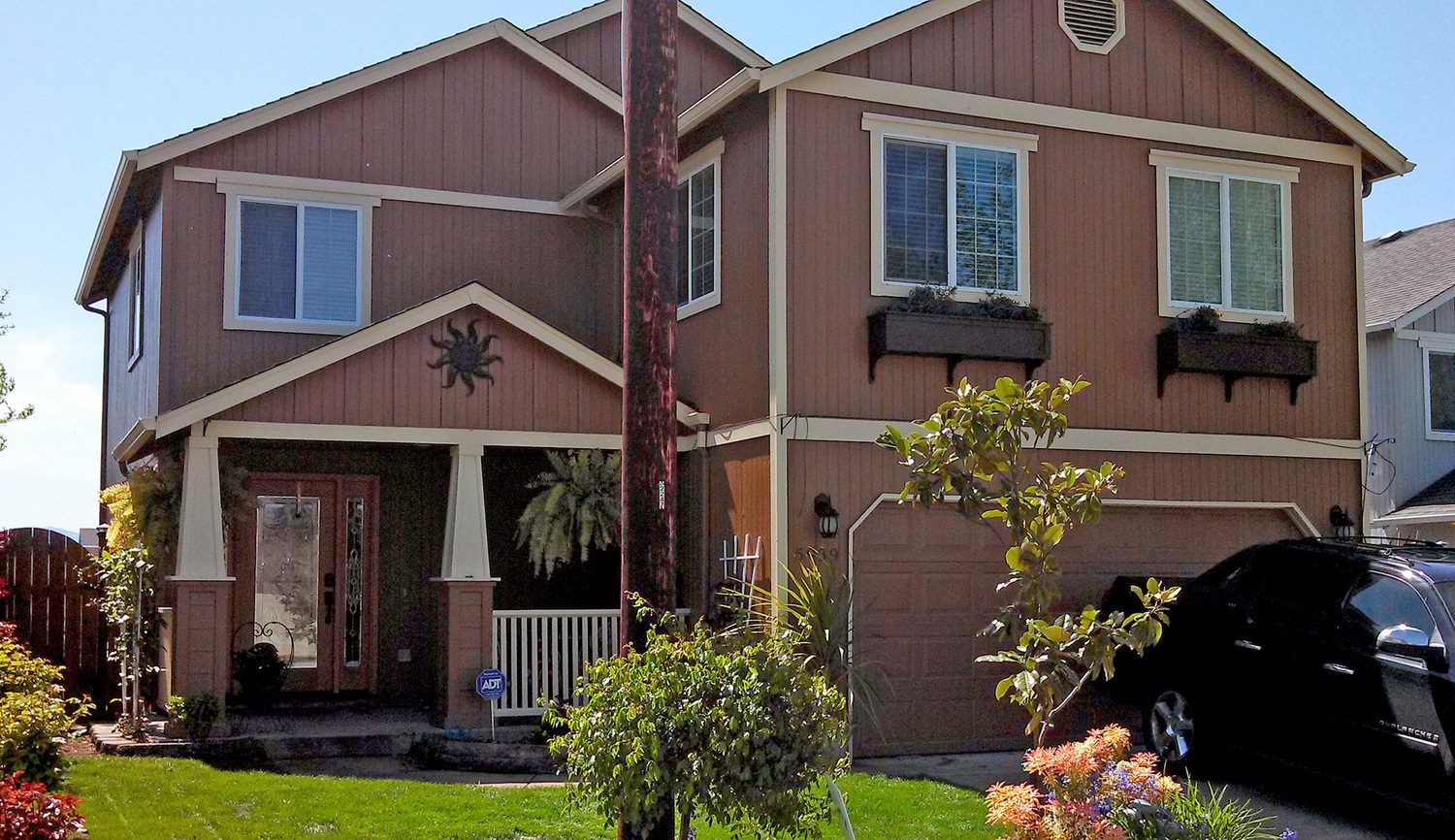Are you experiencing peeling paint on your home or commercial property? Hoping to “fix” it and keep it from happening again?
While you can just paint over a peeling spot, the paint is almost always peeling for a reason and will just start peeling again. Generally, peeling paint is not isolated to only that one area and may require a new paint job to eradicate the issue.
Paint peels for a variety of reasons, ranging from your choice of paint and how you painted it, to temperature and moisture.
Read on to learn 8 reasons why paint peels and what you can do to avoid paint peeling in the future.
#1 Moisture

Paint and water do not mix. In fact, water of any sort is the primary reason why paint flakes, peels, or chips.
Why does this happen? Primarily it’s because water breaks through the coats of paint, causing it to separate from the surface it’s painted on.
Moisture-caused peeling can happen for a variety of reasons, including:
- Water damage: Be it from a leak in your roof or siding, an overflowing bathtub, or water from your shower hitting a section of wall repeatedly, water damage is the quickest way to experience peeling paint.
- Humidity: This is common in humid areas of the country, but here in the Portland area it’s mostly caused by poorly-ventilated homes.
- Condensation: Often experienced around windows, condensation can cause mold and mildew, which cause their own paint issues by growing between layers. This is also incredibly unhealthy to breathe!
You’ll most commonly see this issue in your bathroom and around windows, but peeling paint from water damage can happen anywhere in your home.
#2 Dryness or high temperatures
Dry environments prevent paint from effectively adhering to your wall. This then causes the paint layers to fail and your paint to peel.
More commonly here in the PNW, high temperatures can destroy paint jobs both inside and outside. The heat essentially causes the paint to dry out and separate. It also makes the paint fragile and vulnerable to cracking.
Even if the ambient air temperature in a room in not overly hot, sustained direct sunlight can cause the material to heat to such a degree that this happens.
#3 Unclean surfaces
When paint is exposed to corrosive substances, your paint job can degrade and start to peel. Be it dirt, harsh chemicals, or bird droppings, foreign substances can ruin an exterior paint job.
To prevent this from happening, we recommend cleaning your painted surfaces in a safe method regularly.
#4 Surface was not prepared properly

One of the biggest reasons for peeling paint is a paint job that was never prepared properly. Bad preparation can mean any number of things, including:
- Painting over a previous paint job without priming or correctly preparing the surface for new paint
- The surface was not cleaned properly prior the paint job
- The wrong primer was used. Every type of surface has a specific type of primer that needs to be used for a long-lasting paint job
- Using the wrong brush size for the type of paint and application
#5 Paint has gone bad
Yes, that’s right. Paint is perishable! Paint is a chemical, and like other chemicals, it will go bad if not used before expiration. In addition to growing mold or mildew, paint can separate, which affects its chemical properties and loses its ability to perform as it should.
Never use paint that’s been sitting around for years upon years. Additionally, if you open up a paint can and it smells funky, it probably belongs in the trash and not on your walls.
#6 Wrong type of paint for the surface

Different paints work with different types of surfaces.
When you use the wrong type of paint, not only will the paint eventually start to peel, but it won’t look completely right. Always work with professional painters to make sure that you are using the right type of paint for the surface you are painting.
#7 Too many paint layers
While you may not think of it while you’re painting, paint can get heavy! For this reason, adding too many layers (and thus too much paint) can cause gravity to take hold and paint to start to move away from the surface.
Resist the urge to continue piling on layers of paint to get a deeper color. All it will do is add weight and cause peeling!
#8 It’s just time for a new paint job
While paint peeling could be caused by something that is going wrong, it could also just be getting old.
Paint is not intended to last forever. In fact, most paint jobs last about 10 years before the cohesive bond begins to naturally break down. When this happens, there is nothing you can do but get another complete paint job.
The best way to prevent paint from peeling?

The best way to achieve a long-lasting paint job is to work with an experienced and professional painting company.
At Bluenote Painting, we take pains to not only provide excellent customer service, but use only the best paint available using modern methods.
We’ve earned our reputation in the community through high-quality paint jobs and unbelievable customer service. Our painting projects are high quality and with proper care will last throughout their life cycle. We don’t take shortcuts and only work with skilled painters who you can trust.
We rely heavily on our years of experience as a guide to serve our customers. We promise you that whatever challenges your project faces, we’ve seen a situation just like it before.
We think you’ll love how your home or business looks after being painted by Bluenote Painting.
Schedule your free estimate today
Our interior painters & exterior painters are ready to beautify your Portland-area home or office. Contact us online to schedule today!













